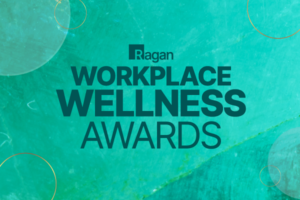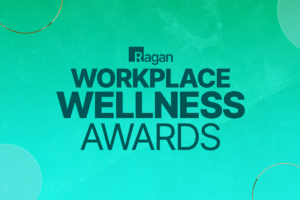A PR firm offered to relocate employees over Texas’ abortion law. Here’s how workers, clients have responded
As more states introduce abortion access laws, some employers have announced supports for employees, like Bospar’s relocation program. Should your organization consider it?

Companies like Yelp and Citigroup have made headlines in recent weeks due to announcing support for employees who may need to travel out of states with restricted access to abortion services in order to have access to reproductive care. And as states like Florida, Oklahoma and others follow in Texas’ footsteps with similar laws, more employers may be considering if they should offer an abortion travel assistance or relocation benefit, too.
The tech public relations agency Bospar announced its Texas Relocation Plan for employees back in September 2021 and has been advocating for other companies to act and speak up since. Curtis Sparrer, principal and co-founder of Bospar, says the company felt it was unacceptable that Senate Bill 8 in Texas was being touted as good for business by the state’s governor and that no company was publicly voicing dissent against the law.

“And most importantly it was unacceptable for 10% of our workforce who are based in Texas,” he adds.
When the fully virtual company asked its Texas-based staff how they would like it to respond, Sparrer says there was initial disbelief among employees that Bospar could do anything substantive because of its small size. The “eureka moment” came in the form of one staff member, who revealed she was considering moving out of Texas and evaluating the related costs to do so.
“At that moment, we decided we would pay the relocation expenses of any Texas staff member who believed the Texas law was interfering with control of their own body,” Sparrer says. “We consulted our HR and legal teams, determining we would offer this to our Texas employees, male and female, with no questions asked. We added that should any other state enact similar legislation we would offer the same benefit, [and] we codified the new benefit in our employee handbook.”
‘Good business sense’
After launching this benefit for its employees — which covers up to $10,000 of an employees’ relocation expense — Bospar also chose to present the case to the media that an abortion ban is bad for a state’s business and to inspire other companies to speak up on the issue.
Sparrer explains that the firm treated the announcement of its Texas Relocation Plan like a product launch — with a press release, blog entries and social media copy. A total of 64 outlets covered the story, and the press release saw 14,000 visits on its first day of publication.
While doing all this, the firm also focused on not alienating its clients. The message Bospar landed on was: “This isn’t about politics or ethics. This is just good business sense, especially since nearly 80% of our staff are women. Selfishly, we want to retain and attract the best workforce imaginable. We also want to leverage our completely virtual model to its full advantage, making clear that our staff can work anywhere they want.”
These efforts by Bospar left a lasting impression on its staff, Sparrer believes, and were cheered on by current and prospective clients. And they aren’t done there.
“We are hoping more PR agencies and companies will be inspired by our example,” Sparrer says. “And we are hoping more companies are not intimidated by efforts to silence women, minorities and LGBTQIA people.”
Under the umbrella of its Bospar Stands Up justice initiative and in response to Florida’s “Don’t Say Gay” law, the firm created the Bospar Human Rights Grant for Educators that will award a Florida public or independent school teacher or administrator a grant up to $20,000 for continuing education and any certifications or higher education they are seeking or fund a project or expense related to helping their local community.
What’s to come
As more states introduce restrictive abortion access laws that also include fines or the ability to file lawsuits against medical providers and those offering support, the U.S. Supreme Court is scheduled to rule this summer on the constitutionality of a Mississippi case that could potentially weaken or overturn Roe v. Wade.
The big picture question around Mississippi’s 15-week abortion ban case — Dobbs v. Jackson Women’s Health Organization — is whether a state can ban abortion before viability, which is generally at weeks 24-26 of pregnancy. The Guttmacher Institute, which researches sexual and reproductive health and rights, says that if Roe v. Wade is overturned or fundamentally weakened “26 states are certain or likely to ban abortion.”
This could impact 40 million women between the ages of 13 and 44 who currently live in states unfavorable to abortion rights. With many organizations touting their family planning and parental leave benefits, it may be worth considering if adding abortion travel assistance or relocations benefits should be another facet of that support.
In an interview with Fast Company, Sparrer said, “When the next couple of states enact their own legislation similar to Texas, I think that’s going to be the tipping point. That’s when you’re going to have major industry titans enact similar laws, and that’s probably when you will see an exodus of companies from Texas and from any other state — just because every bit of evidence shows that the more educated your workforce is, the more likely they’re willing to be mobile for the sake of a better opportunity. And there’s no better opportunity than control of your own body.”
COMMENT
Ragan.com Daily Headlines
RECOMMENDED READING
Tags: abortion access laws, Bospar, employee benefits, relocation, women's wellness






